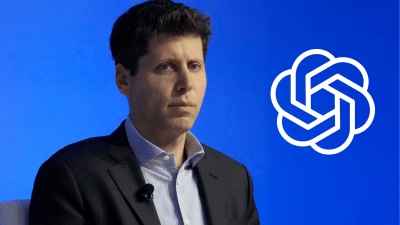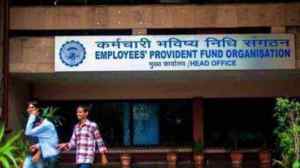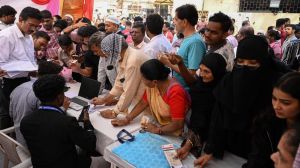145;Step up economic reform146;
8226; I8217;ve seen both babudom at work and the heady growth of the post-reform 8217;90s. This has made me a committed votary of the pri...

8226; I8217;ve seen both babudom at work and the heady growth of the post-reform 8217;90s. This has made me a committed votary of the private sector. With your usual accuracy, you8217;ve pointed out how reforms and the pace of growth are being scuppered at every level and could negate any advantage we8217;ve gained over Pakistan. In that context, I have to add my own armchair-policymaker suggestion to tackling the Kashmir problem. We must engineer a way to let the educated youth there plug into the success their counterparts in Mumbai, Bangalore and Delhi are enjoying 8212; open a software development park or a Kashmiri SEEPZ under armed guard; give incredible tax-breaks for setting up shop there. Surely once the Valley youth start playing in the big league, those against progress and peace will find themselves more quickly marginalised.
8212; Parshu Narayanan
8226; You say it is odd that the same people who detest US corporations as some sort of B-52s of their global ambitions, see their own private sector as anti-national thieves. I find that you have seen contrast where actually there is congruence. It is the general opinion that the private sector, foreign or Indian, is out to make a fast buck. The positive thing about American corporations is that they prey on third world countries, with the connivance of their corrupt rulers, and enrich America. But most of our industrialists, especially those who rule the roost, are out to squeeze their own serfs, often acting as surrogates of foreign corporations. The greatest grouse against these second or third generation blue-blooded, born-with-business-acumen industrialists is that they never feel the need to pull strings in the government for good causes 8212; such as boosting indigenous research and development. All they ever clamour for is permission to import discarded technology and protection against foreign competition so that they can pass off shoddy goods at sky-high prices to a populace held at ransom.
| Across the border and back 8212; in a day I am a 26-year-old living in Bhalwal-Sargodha, Pakistan. It is my dream that one day, I will set out in my car at 5:30 in the morning, reach Lahore at 7:30 am, get my documents and car checked and cleared by the concerned authorities at Wagah at 8:30 am, cross over to the Indian territory at 9 am, and be with my relatives in Indian Punjab at 11 am. After a relaxed lunch with them, I will set out at 2:30 pm, reach Wagah at 4:30 pm, cross over to Pakistan at 5 pm and reach my house in Bhalwal-Sargodha at 8 pm. Insha Allah this dream will soon come true. 8212; Shahid Mahmood |
If the industrial, business and political aristocracy in the country are really Indian, they should promise to give their countrymen nothing but the best 8212; be it goods, services or governance. That should be the basic principle. Economics cannot be divorced from politics in a democracy, and the politician has to be accepted as the better judge of popular opinion than an economist or an industrialist.
8212; Suresh Bhave
8226; The column is a timely reminder of the U-turn our economic reforms are taking. We have to address the slowdown at different levels. Our PSUs can best be described as 8216;8216;Parasites Sapping Us8217;8217;. They are a drag on our economy, a legacy of our flirtation with Socialism. These need to be ruthlessly dismantled.
Defence PSUs are no different, except that much public scrutiny is avoided. Their role must be limited to explosive making and filling only. Ammunition boxes, bomb castings, sheet metal tail units, shell forgings, precision fuses can all be made, in much better quality, in our industries at a fraction of the cost. Similarly, government labs do not offer environment conducive to research work. There is need to involve the private sector, including educational institutions like IISc, IIT8217;s and even private engineering colleges, in defence and other research work. If the Indian pharmaceutical industry could make so much impact in R038;D, our private sector can really make breakthroughs in defence research given even half the support being wasted in the public domain. Routinely conferring 8216;8216;Scientist of the Year8217;8217; awards on lab heads who hardly find time for research work, or publicising rocket firings coinciding with opportune timings, could at best be blowing own trumpet. We could be truly proud of our defence sector when the dependence on imports reduces. Likewise the Army, Navy and Air Force do not have to run their own engineering colleges at colossal costs when there is a proliferation of technical education in the country.
Our export of foodgrain, flowers, fruits, vegetables, processed food items, textiles, clothing, liquor, beverages, automobiles, engineering items like forgings, auto ancillaries, traditional and ethnic items like Ayurvedic preparations, pan must be stepped up. The tourism and hospitality industry should be given more impetus to earn foreign exchange. One billion Indians need to be put on the numerator for the GDP growth engine rather than in the denominator to arrive at dismal per capita. What we need is a leadership with vision and daring, which can harness the vast potential of the spectrum of manpower 8212; from medicos, engineers, software professionals, scholars, artists, artisans, hardy farmers and.
8212; Air Cmde Raghubir Singh Retd
8226; I suppose you could have said all that you did much more simply and directly. I fail to understand why you brought in Pakistan, Cohen et al, unless as a subconscious urge to indulge in some bashing.
8212; Nanda
8226; I have observed one thing in the political-economic realm of this country: when the government is weak, we are doing better economically and vice versa. The reason seems to be that when a government is weak, the political class tend to interfere less. Most of our ministers are demagogues. One good person like Sam Pitroda, given a free hand, could achive miracles. We now have one of the best telecommunication systems. I think it was Gandhiji who said, 8216;8216;the government which governs the least is the best8217;8217;. How true!
8212; B.P.Shah
8226; Even from the viewpoint of the Pakistanis, it would be a healthy development if there were to be greater interest in a kind of economic growth race between the two neighbours. In the longer perspective, an economically powerful India, with various institutes of excellence in education, health and technology, could become a great attraction for Central and West Asias countries. This, in turn, would put pressure on our neighbours to seek friendly relations with us. India has been blessed with some great Prime Ministers and statesmen since independence. Unfortunately, most of them have been innocent about economics. This is in striking contrast to the economically pragmatic leadership in East Asia and the West. You have correctly observed that the voter 8216;8216;will back whoever promises him a better life and not just arbitrary cuts on power, telephone and fuel bills8217;8217;. Yet our politicians keep making profligate concessions to the so-called middle-class. Obviously their definition of the middle-class voter excludes the thinking people who can put national interest above the saving of a few rupees.
8212; Arjun Asrani
- 01
- 02
- 03
- 04
- 05































